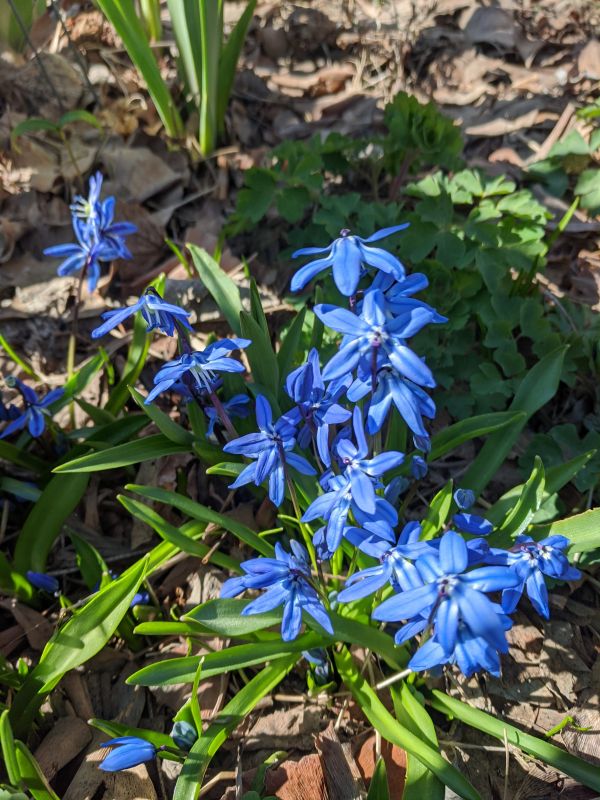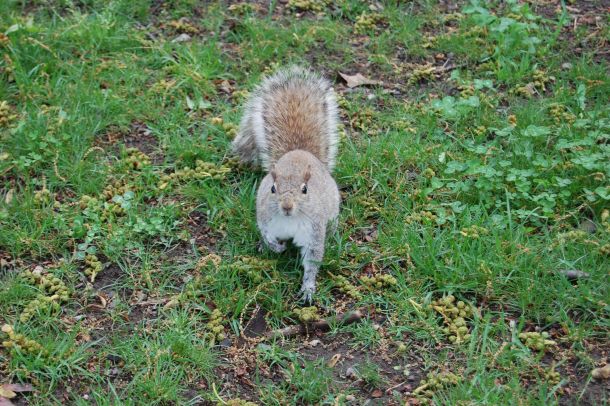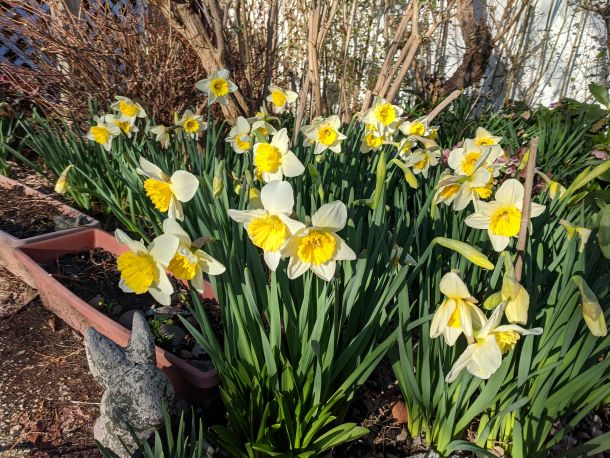This piece, which explores the assault on nature that has contributed to the spillover of the coronavirus responsible for COVID-19, was prepared by Wildlife Conservation Society‘s Senior Conservation Ecologist and Fellow with the Dorothy and Lewis B. Cullman Center for Scholars and Writers, New York Public Library, Eric Sanderson.
One of the many disconcerting aspects of the current moment is how blithely unaware the rest of nature seems to be about the crisis gripping humanity. Here in New York the spring migration is well underway, with each day bringing new waves of birdsong. The weather oscillates in its usual vernal tug-of-war between a warming land and the still cool sea. Squirrels and chipmunks are out and active, finding nuts tucked away last fall and nibbling on incipient flower buds.
Except for the suddenly clearer air, and the noticeably quieter streets, the robin rooting for worms in my backyard could be forgiven for not noticing anything was up at all.
To explore this apparent lack of concern, and to see if there might be anything to be learned from ecology in the time of pandemic, I tracked down Mother Nature as she was passing through my garden on City Island in the Bronx. Although very busy, she agreed to answer a few questions before moving on to the next ecosystem.

Photo courtesy of Eric Sanderson
ERIC: Mother Nature, how do you explain the callous disregard the rest of nature has for the havoc the coronavirus is wreaking on so many human lives? Economies are seizing up, people are out of work, tens of thousands are sick, and there are not enough ventilators in the hospitals to care for an increasing number of folks who literally cannot breathe on their own. People are dying, yet trees are steadfastly prepping to flower and bees are buzzing as if nothing were wrong.
MOTHER NATURE: Dear child, it’s not that plants and insects don’t care for you and your kind! Indeed they deeply care, each in their own way, for what happens to the human enterprise affects very many. It’s just that they have limited scope for communicating. Most species are not as verbose as yours. Plus, it’s spring here in the Northern Hemisphere, and there is just so much work to be done. It’s not easy making a living in today’s natural economy, you must realize.
ERIC: Ok, I get that. Climate change and all.

Photo courtesy of Eric Sanderson
MOTHER NATURE: Climate change is just the tip of an iceberg that is rapidly melting, if you get my drift. [Chuckles.] Seriously though, climate change is a big worry, but more relevant in this particular case, is habitat destruction. After all, you humans have taken vast stretches of lovely forest, grasslands, swamps, and so forth, all over the world, and plowed them into fields and covered them with suburbs and dissected them with roads and blighted them with cattle or sheep, with very little consideration of what it means for all the other plants and animals, or yourselves really. That has put you in much closer contact with other species than you ought to be, and hence, magic presto, a pandemic.
ERIC: What are you talking about?
MOTHER NATURE: I’m talking about social distancing with wildlife. Although, even to me, it’s not exactly clear what happened this time, my sources suggest that the virus that has upset your affairs so severely was, until just a few months ago, relegated to living with a few bats in a few caves a long, long way from here. And then someone took a bat and put it in cage, next to a pangolin or civet or some other frightened creature, also in a cage, in a bustling marketplace full of people. And this virus, which doesn’t much bother most other kinds of mammals, found its way into you. And your bodies are like a virgin continent, a new world, a vast unexploited resource for this tiny wad of RNA and protein. The S&P 500 may be down, but stocks in COVID-19 are up to unprecedented levels.
ERIC: But it is killing people!
MOTHER NATURE: Yes, and I feel bad about that, I really do. It is always sad to see my creatures, any of them, pass before their time. However, what you must realize, is that from the perspective of this virus, if a few hundred of its hosts, or a few thousand, or a few tens-of-thousand, die – well, that’s just the price of progress.
ERIC: That is a cruel way to put it. And completely immoral. And appallingly selfish.
MOTHER NATURE: You’re American, aren’t you? [She gives me a sidelong glance.] Anyway, morality is a human notion, my dear. You shouldn’t be looking for lessons about right and wrong from Mother Nature. I helped shape your creativity and intelligence, your ability to talk to each other, your capacity to make decisions, for literally millions of years. If you choose not to use those remarkable attributes to manage your affairs with more wisdom and grace, then I can’t help you. Mother Nature suffers fools gladly all the time, but not forever. Speaking of, I need to be off. So much to do!

Photo courtesy of Eric Sanderson
ERIC: Mother Nature, please tell me, tell our readers, what they should do. Can you help us feel better?
MOTHER NATURE: Listen child, I have seen species come, and I have seen species go. Never have I known a species with greater capacity to adapt, and therefore last, than yours. This virus will not be the end of you. The great majority of you will come out of your homes, go back to your businesses, take up your daily lives again. The question is, will you learn anything from this experience? You must now, if you hadn’t before, recognize this essential truth: our relationships – to each other and to Mother Nature — are why we are all here. Give more than you take, my son, and be well.
And with that she was gone, leaving me hardly alone, with the birds singing and warm sunshine on my face.
